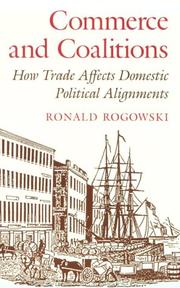| Listing 1 - 3 of 3 |
Sort by
|
Book
Year: 2011 Publisher: New York PH04
Abstract | Keywords | Export | Availability | Bookmark
 Loading...
Loading...Choose an application
- Reference Manager
- EndNote
- RefWorks (Direct export to RefWorks)
Over the past two decades, much attention has been given to the new media culture of video games, due to their unique features and pervasive nature among young people. This book critically examines the role of video games in education, arguing that they encourage strategic thinking, planning, communicating, negotiation skills, multi-tasking and group decision-making. It is also observed that video games promote higher levels of attention and concentration among players. The book contains multiple perspectives and presents thought-provoking ideas, innovative approaches, systemic exploration, exemplary and promising efforts, and future-oriented scenarios. The book draws together distinguished researchers, educational and curriculum planners, game creators, educational and social psychologists, and instructional designers to explore how video games can transform the future of education. «This volume makes a substantial contribution to the growing field of games and learning. Both the range of topics and the depth of exploration make it well worth the read. A forward-leaning discussion that will certainly help shape this emerging field.» (Constance Steinkuehler, University of Wisconsin-Madison, USA) «To push the field forward we need more critical thinking, like this book, that will find innovative ways to get us from experiments to practical use in schools.» (Simon Egenfeldt-Nielsen, IT University of Copenhagen, Denmark)
Adrian --- Colin --- Digital Games --- Education --- Educational Games --- Edutainment --- Exploring --- Future --- Game Research --- Game-based Learning --- Games --- Instructional Game Design --- Khine --- Knobel --- Lankshear --- Learning --- Michael --- Michele --- Myint --- Pedagogy --- Peters --- Play --- Video
Book
ISBN: 9789756959909 Year: 2014 Publisher: Istanbul ARTER
Abstract | Keywords | Export | Availability | Bookmark
 Loading...
Loading...Choose an application
- Reference Manager
- EndNote
- RefWorks (Direct export to RefWorks)
Art --- art [discipline] --- Buddhism --- kunst en politiek --- Lim, Jason --- Aquilizan, Alfredo Juan --- Harsono, FX --- Jaarsma, Mella --- Kunavichayanont, Sutee --- Lé, Dinh Q. --- Lee, Wen --- Murti, Krisna --- Puntusawasdi, Tawatchai --- Rasdjarmrearnsook, Araya --- Shaowanasai, Michael --- Sitthiket, Vasan --- Sriwanichpoom, Manit --- Suryodarmo, Melati --- Aquilizan, Maria Isabel --- Reamillo, Alwin --- Ko, Aung --- Myint, Aung --- Bùi, Công Khánh --- Chong Chan Fui, Chris --- Hardono, Duto --- Roslisham, Ise --- Siributr, Jakkai --- Turalba, Josephine --- Luong, Hue Trinh --- Nguyen, Xuan Son --- Nguyen Van Cuong --- Ratnaningtyas, Restu --- Bandaul, Srey --- Tay, Wei Leng --- Vu, Dan Tan --- Yee, I-Lann --- Dono, Heri --- Vertical Submarine --- anno 1990-1999 --- anno 2000-2009 --- anno 2010-2019 --- Southeast Asia

ISBN: 0691078122 0691023301 0691219435 Year: 1990 Publisher: Princeton. : Princeton University,
Abstract | Keywords | Export | Availability | Bookmark
 Loading...
Loading...Choose an application
- Reference Manager
- EndNote
- RefWorks (Direct export to RefWorks)
Why do countries differ so greatly in their patterns of political cleavage and coalition? Extending some basic findings of economic theories of international trade, Ronald Rogowski suggests a startling new answer. Testing his hypothesis chiefly against the evidence of the last century and a half, but extending it also to the ancient world and the sixteenth century, he finds a surprising degree of confirmation and some intriguing exceptions.
International relations. Foreign policy --- Foreign trade. International trade --- Coalitions --- International trade --- Political stability --- World politics. --- History. --- Political aspects --- World politics --- Colonialism --- Global politics --- International politics --- Political history --- Political science --- World history --- Eastern question --- Geopolitics --- International organization --- International relations --- Destabilization (Political science) --- Political instability --- Stability, Political --- Consensus (Social sciences) --- Legitimacy of governments --- External trade --- Foreign commerce --- Foreign trade --- Global commerce --- Global trade --- Trade, International --- World trade --- Commerce --- International economic relations --- Non-traded goods --- Coalition (Social sciences) --- Social groups --- History --- Political aspects&delete& --- Argentina: in interwar period. --- Australia: in interwar period. --- Bates, Robert. --- Bismarck, Otto von. --- Canada: in interwar period. --- Corinth. --- El Salvador. --- European Community. --- Germany, East. --- Greece, ancient. --- Hinton, William. --- Iran, in postwar period. --- Islam, sources of rise. --- Japan: in interwar period. --- Kenya. --- Kindleberger, Charles. --- Learner, Edward. --- Leontieff paradox. --- Moore, Barrington, Jr. --- Myint, Hla. --- Nelson, Joan. --- Olson, Mancur. --- Philippines. --- Pirenne thesis. --- Roman Empire. --- Sparta. --- Vichy regime. --- class conflict. --- factor mobility. --- fascism. --- human capital. --- socialism. --- Economic policy. --- International trade. --- Política económica. --- Comercio internacional. --- Economic nationalism --- Economic planning --- National planning --- State planning --- Economics --- Planning --- National security --- Social policy
| Listing 1 - 3 of 3 |
Sort by
|

 Search
Search Feedback
Feedback About UniCat
About UniCat  Help
Help News
News